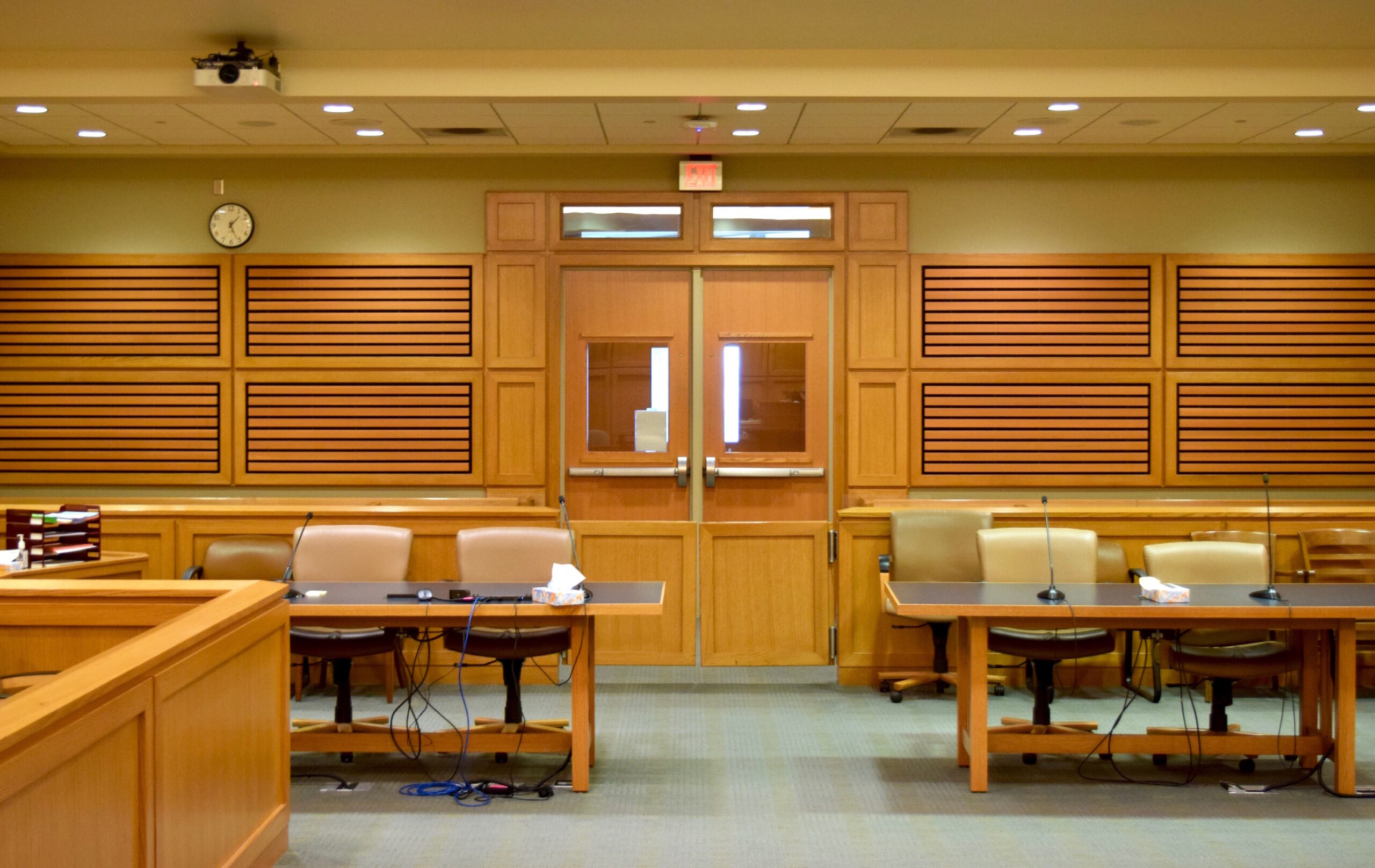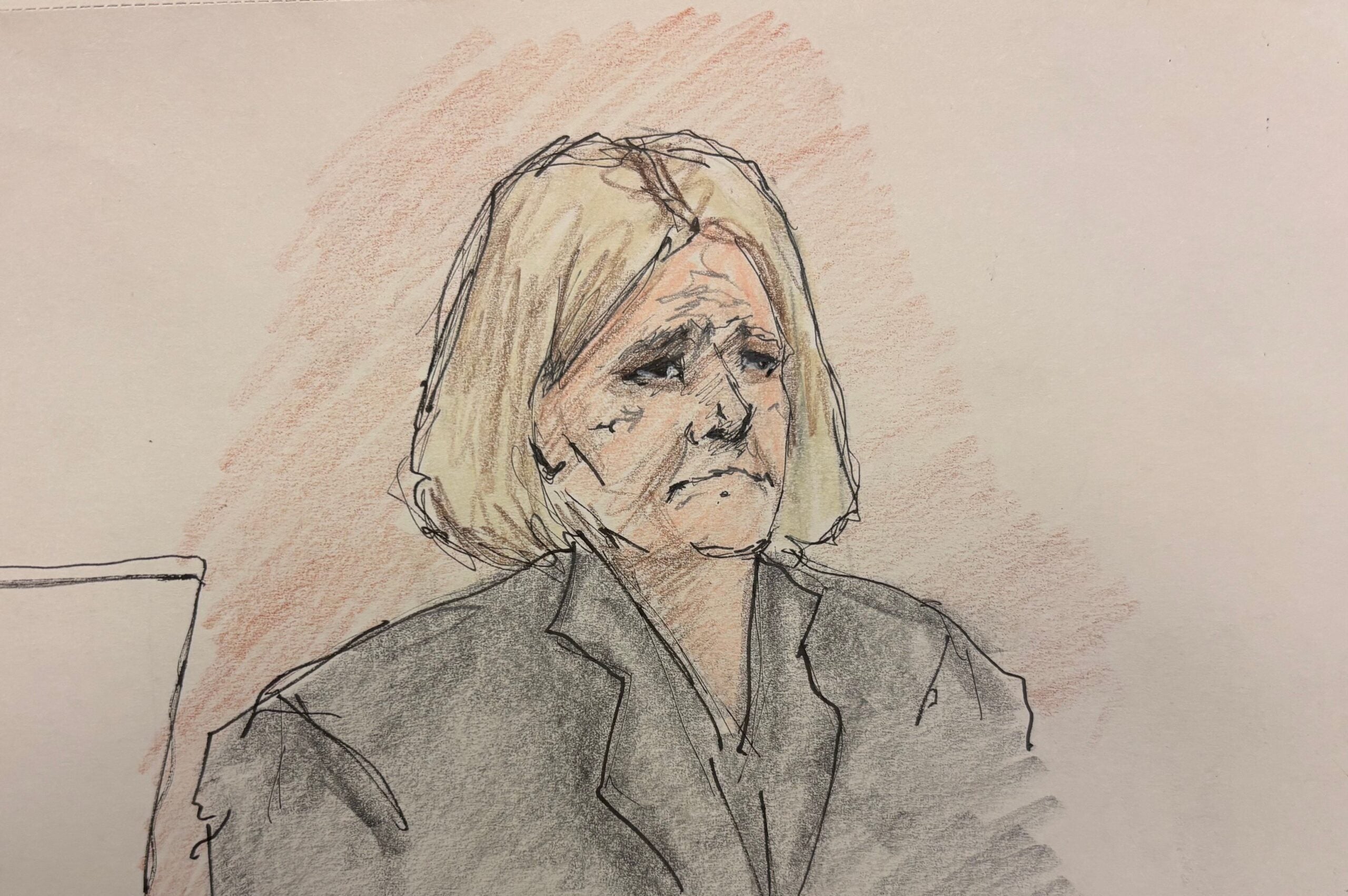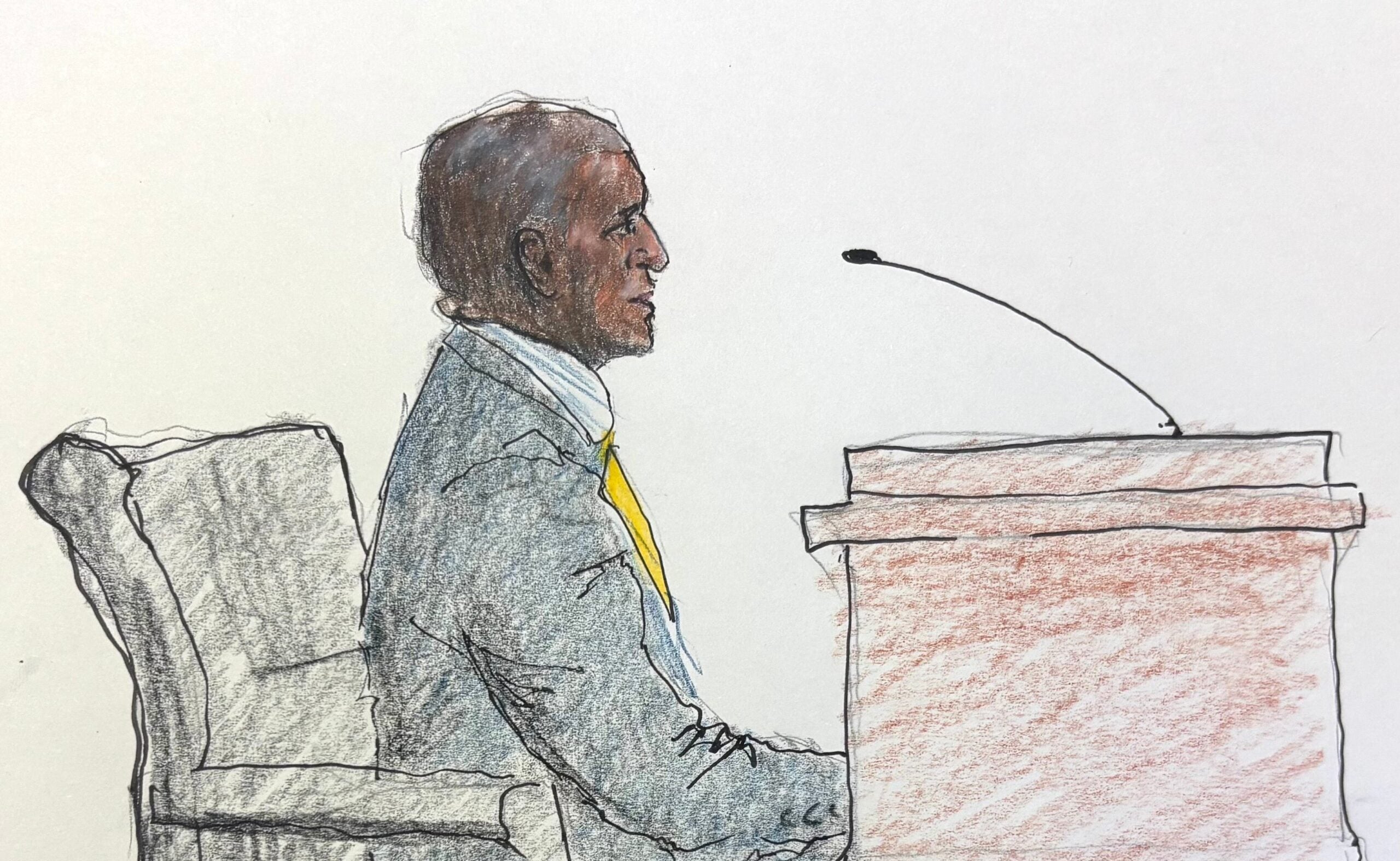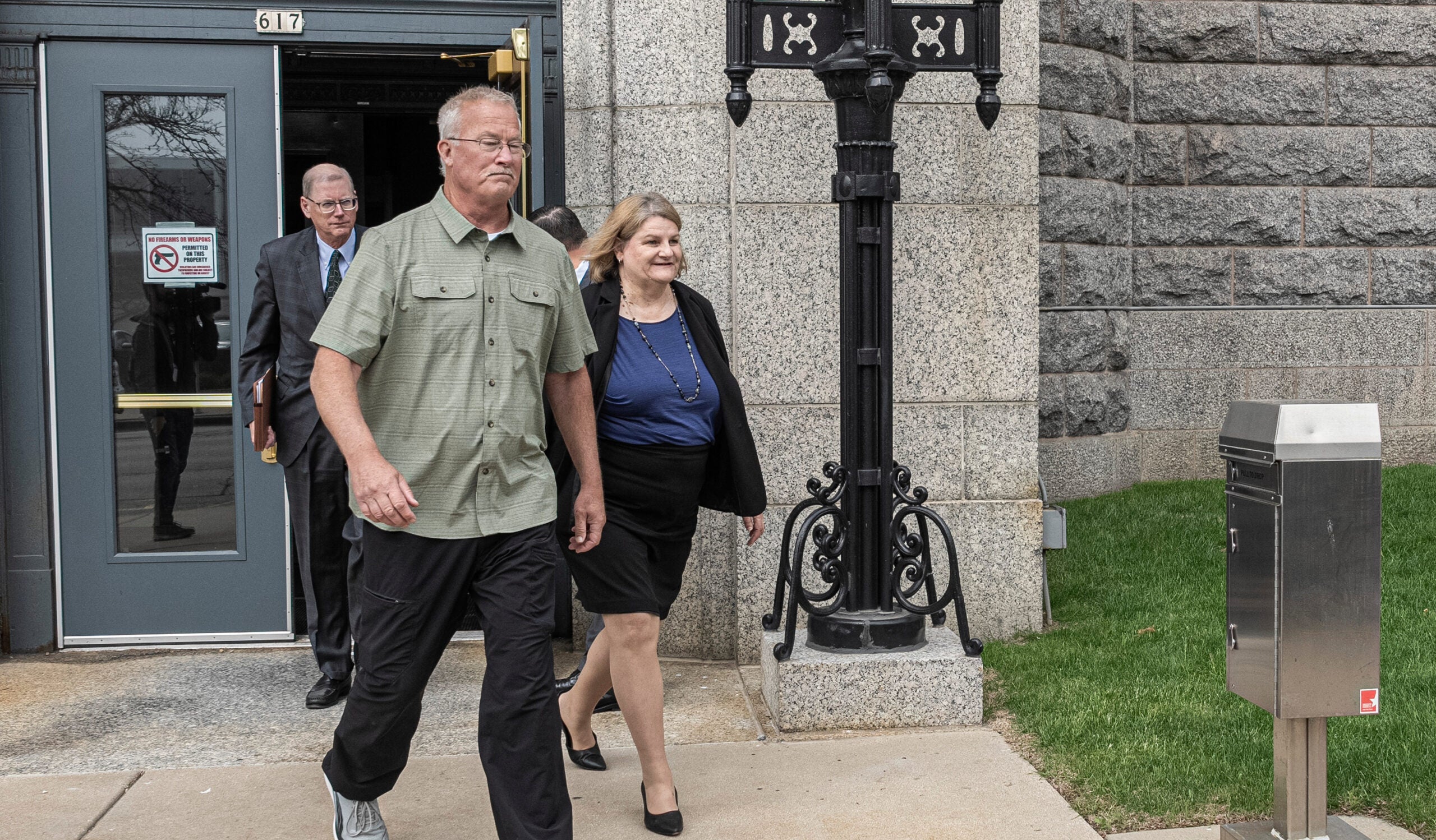In Wisconsin, justice is getting somewhat speedier as courts work to reduce to a post-pandemic backlog of criminal cases.
In 2023, it took an average of 259 days, or about eight-and-a-half months, for a Wisconsin felony case to be resolved.
That’s five days faster than the average for the year prior, Wisconsin Court system data shows. And that’s despite the fact that circuit courts across Wisconsin handled a greater case load last year compared to 2022.
News with a little more humanity
WPR’s “Wisconsin Today” newsletter keeps you connected to the state you love without feeling overwhelmed. No paywall. No agenda. No corporate filter.
In 2023, there were 44,128 felony complaints filed — about 260 more than in 2022.
Nonetheless, criminal cases are still taking longer to work through the system than before the COVID-19 pandemic struck Wisconsin.
In 2019, a Wisconsin felony case was resolved after 183 days, or about six months, on average.
That average increased to 208 days in 2020 and in shot up again in 2021 to 241 days, or close to eight months.
For misdemeanor cases, the pattern has been similar. Last year, the average misdemeanor case in Wisconsin was closed after 166 days, which was 10 days faster than the average for 2022.
In 2019, it took an average of 118 days to close a misdemeanor case.
Adam Plotkin, a spokesperson for the State Public Defender’s Office, said he’s seeing evidence that backlogs have eased somewhat in 2023 and 2024 compared to prior years when “we were still seeing the effects on the process from the pandemic.”
Pandemic-related restrictions helped fuel backlog
In 2020, amid calls for social distancing, circuit courts across the state suspended jury trials, as well as in-person hearings. That contributed to a backlog in cases that courts are still working through.
Plotkin says lower vacancy rates among public defenders, prosecutors and private bar attorneys are also helping cases to proceed more quickly.
In mid-2023, raises in Wisconsin’s state budget took effect for public defenders and for the prosecutors who work in district attorney’s offices. The two-year budget also bumped up compensation for private attorneys who agree to represent low-income clients when someone from the public defender’s office is not available.
Those raises came after the state’s bar association warned a shortage of local prosecutors and public defenders was so bad it was approaching a “constitutional crisis.”
Attorney vacancy rates are down
The higher pay has increased the availability of lawyers in Wisconsin’s criminal justice system, allowing cases to move more swiftly, said Dan Flaherty, who leads the Association of State Prosecutors, which represents assistant district attorneys across the state.
“It means that experienced prosecutors and defense attorneys stay in roles that they otherwise might leave, and it also means that new people looking to start their career will come into the profession because they see better economics there,” Flaherty said. “I noticed personally, right after [the raises took effect], it seemed like courts were really able to appoint attorneys with greater ease than they had been before.”
Plotkin also said the new pay scale has been helpful, though he added, “it was not a magic bullet, nor did we expect it to be.” He says the backlog could improve further if prosecutors reduced the number of cases in the system by choosing not to file criminal charges in some instances.
In the State Public Defender’s Office, close to 14 percent of trial attorney positions are sitting vacant, Plotkin said in November. That’s an improvement compared to a spike during the pandemic of nearly 25 percent, though it’s still higher than the pre-pandemic “baseline” when the vacancy rate hovered at 10 or 11 percent, Plotkin said.
In county prosecutor’s offices across the state, only about 3 percent of roughly 450 assistant district positions are empty, according to Wisconsin’s Department of Administration. In the fall of 2021, close to 20 percent of those positions were vacant.
All of Wisconsin’s district attorney and deputy district attorney positions are filled currently, a DOA spokesperson said in late November.
Delayed justice hurts defendants, victims
For someone accused of a crime, a backlog can mean more time stuck behind bars awaiting a court appearance. And delays can impact a defendant’s Sixth Amendment right to a speedy trial.
For victims of crimes, a drawn-out process can be frustrating and traumatizing, said Flaherty, who prosecutes homicide cases as an assistant district attorney in Milwaukee County.
“For the victims who’ve lost a loved one, it is incredibly painful to have to go through hearing after hearing after hearing where the defendant doesn’t have a lawyer yet,” Flaherty said. “It just kind of extends this process of grieving their lost loved one.”
And Flaherty says delays can make it harder to build a good case.
“Cases never get better when they get older,” he said. “Maybe an officer will retire and move to Florida. Maybe a key witness passes away. Or people’s memories get foggy.”
Wisconsin Public Radio, © Copyright 2025, Board of Regents of the University of Wisconsin System and Wisconsin Educational Communications Board.







